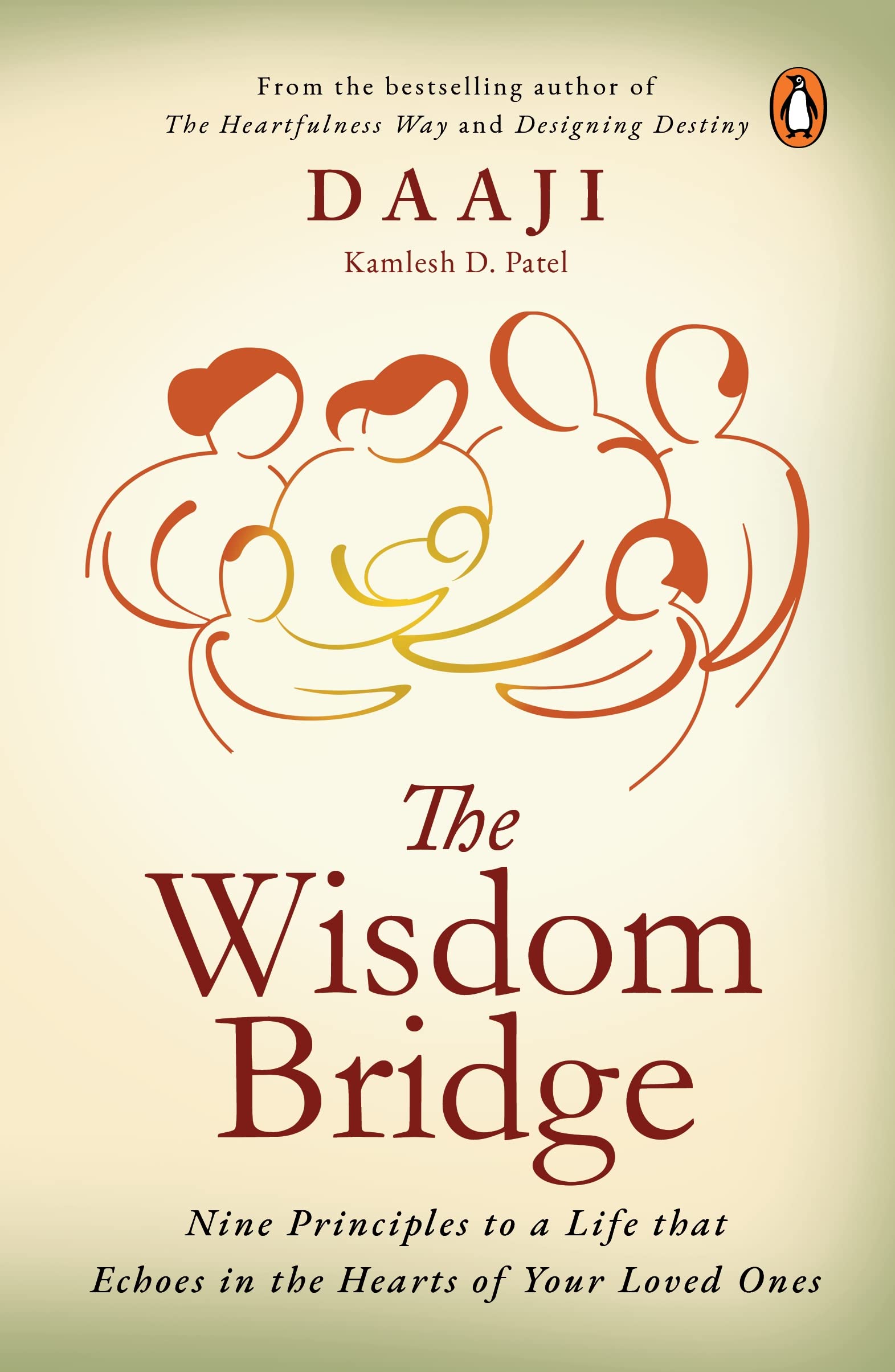The book “The Wisdom Bridge” by Kamlesh D. Patel offers nine principles to guide you, the reader, to live a life that inspires your children and your loved ones.
These principles are important references for parents, parents-to-be, grandparents and caregivers to create fulfilling and happy lives.
They will not only help you enrich the lives of your children and raise responsible teenagers, but pave the way for an inspired life and resilient bonds in your family.
Read an excerpt from the book below.
D-Day, Dutch Hunger Winter and Epigenetics
Its Nature and Nurture: Enter Epigenetics
While the debate between the nature and nurture camps raged, some scientists forged a new path in the field of biology called epigenetics. ‘Epi’ means something on the outside. Epigenetics studies the effect of the environment on one’s genes. Epigenetics says it is nature and nurture, not nature versus nurture. You may be blessed with great genes, but if you were not nurtured well after birth, then the genetic advantage is lost. Nature and nurture work together.
Epigenetics is showing us new ways of understanding the relationship between one’s environment and one’s genes.
Research in epigenetics shows that external factors can turn on or turn off genes. This process is called methylation. In the studies of the Dutch Hunger Winter, scientists found specific genes involved in metabolism showed evidence of methylation. So, the genes that were supposed to help the body grow and burn fat were suppressed from expressing as they normally would. As a result, later in life, while in their fifties and sixties, because of the suppressed genes, these adults suffered from obesity and heart disease.
Epigenetics is showing us new ways of understanding the relationship between one’s environment and one’s genes. One may be blessed with good genes but external factors like social status, income and access to healthcare can impact one’s health at a genetic level. While reading these pages, some of you may start worrying about what your parents or grandparents did or didn’t do and how it may have affected you. Please don’t be alarmed. Firstly, research also shows that epigenetic changes are reversible. For example, in the case of smokers, it has been observed that smoking causes epigenetic changes in the body (specifically for the AHRR gene). However, when they quit smoking, these changes reversed over time. Secondly, knowing what you know now, planning how you would do things differently is a better way to channel your energy. As a parent today and as a grandparent in the future, how would you play your role in creating the right environment that allows for the best expression of one’s genes, that is a worthwhile effort.
Focusing on the Pregnant Mothers Care
While our elders may not have used the word ‘Epigenetics’, they must have understood its influence on a person’s health. For example, in Charaka Samhita an ancient Ayurvedic text, there is a section called Garbhini Vyakarana (meaning Development of the Embryo). It is the palm leaf version of What to Expect When you’re Expecting. In it, there is a verse that reads, ‘If a cup filled with oil right up to the brim is to be carried without spilling even a single drop, every step has to be taken with care.’ This verse refers to the care and nurturing needed for an expectant mother during pregnancy.
What’s special about this ancient text is it focuses on physiology as much as it does on the environment surrounding the expectant mother. The post-conception care as detailed in the texts offers prescriptions for diet (aahara), daily routine and activities (vihara) and medicines (aushada). Everything from recommended foods for each month, types of massages and exercises, air quality, sunlight, moonlight, aromas and even music for the expectant mother are described. What we would today call epigenetic influences are well documented in the ancient text.
The wisdom behind sending the expectant mother to her parents’ home was to ensure an environment free from any stress.
In Indian society, the tradition of sending the expectant mother to her parents’ home reflects an understanding of epigenetic influence. The custom is still followed but many do not understand the significance behind it. For the longest time, Indian society was agrarian, where the men worked the fields, and the women took care of everything else. Raising the children, cooking, cleaning, helping during the harvest and anything else that needed to be done was handled by the women. It was a lot of work, and for a woman to not support her family by doing her share of the work made it difficult. But pregnancy brings on such an onslaught of physical and emotional changes that it is impossible to maintain the same energy levels as before.
The wisdom behind sending the expectant mother to her parents’ home was to ensure an environment free from any stress. This way, the expectant mother could spend the time in the loving care of her family without having to worry about expectations from her in-laws, labour-intensive chores or her own guilt in not being able to help.
In her parents’ home, her lifestyle was set up in such a way that both the foetus and the mother were nurtured physically, mentally and spiritually. The mother’s daily routine was well planned in terms of the food she ate, the dietary supplements she would have, her resting hours and some light household activities to keep her busy. The devotional prayers of the elders created an atmosphere of piety and peace. Various rituals and ceremonies punctuated the pregnancy, the significance of which was to keep the mother to be in good spirits. Back then, families were large, and people had many children. A house filled with the laughter of little children uplifted the spirits of the mother-to-be. The social support at home acted as an immunity shield for the mother.
Even though I am referring to Indian households, across cultures of the world, customs that honour pregnancy and suggest special care for the expectant mother are pervasive. Earlier in the chapter I shared examples from China, Columbia and Nigeria. Anthropologists have also studied these customs. For example, in her seminal work Coming of Age, the anthropologist Margaret Mead writes about the customs of the Samoans. She says that for months before the birth of a child, the father’s relatives bring gifts of food to the prospective mother, who lived with her parents. The mother’s relatives busy themselves making baby clothes and tiny baby mats. The pregnant mother is advised against any solitary work, heavy work and avoiding extreme heat and cold. At the time of birth, the father’s mother or sister is present to care for the newborn, while the midwife and the relatives cared for the mother.
The physical, emotional and spiritual health of the parents affects their children. A 2018 study by Child Trends, a leading research organization in Washington DC, reported that ‘the parents’ health is one of the strongest predictors of child’s health’. Their research showed that parents’ health was more strongly associated with the child’s health than many other factors, including family income, family structure, parents’ level of education, and the child’s sex, age or race. Our elders intuited this knowledge and recognized that healthy mothers build healthy nations. Happy mothers make happy families.

Excerpted with permission from The Wisdom Bridge: Nine Principles to a Life that Echoes in the Hearts of Your Loved Ones, Kamlesh D. Patel, Penguin India. Read more about the book here and buy here.






















